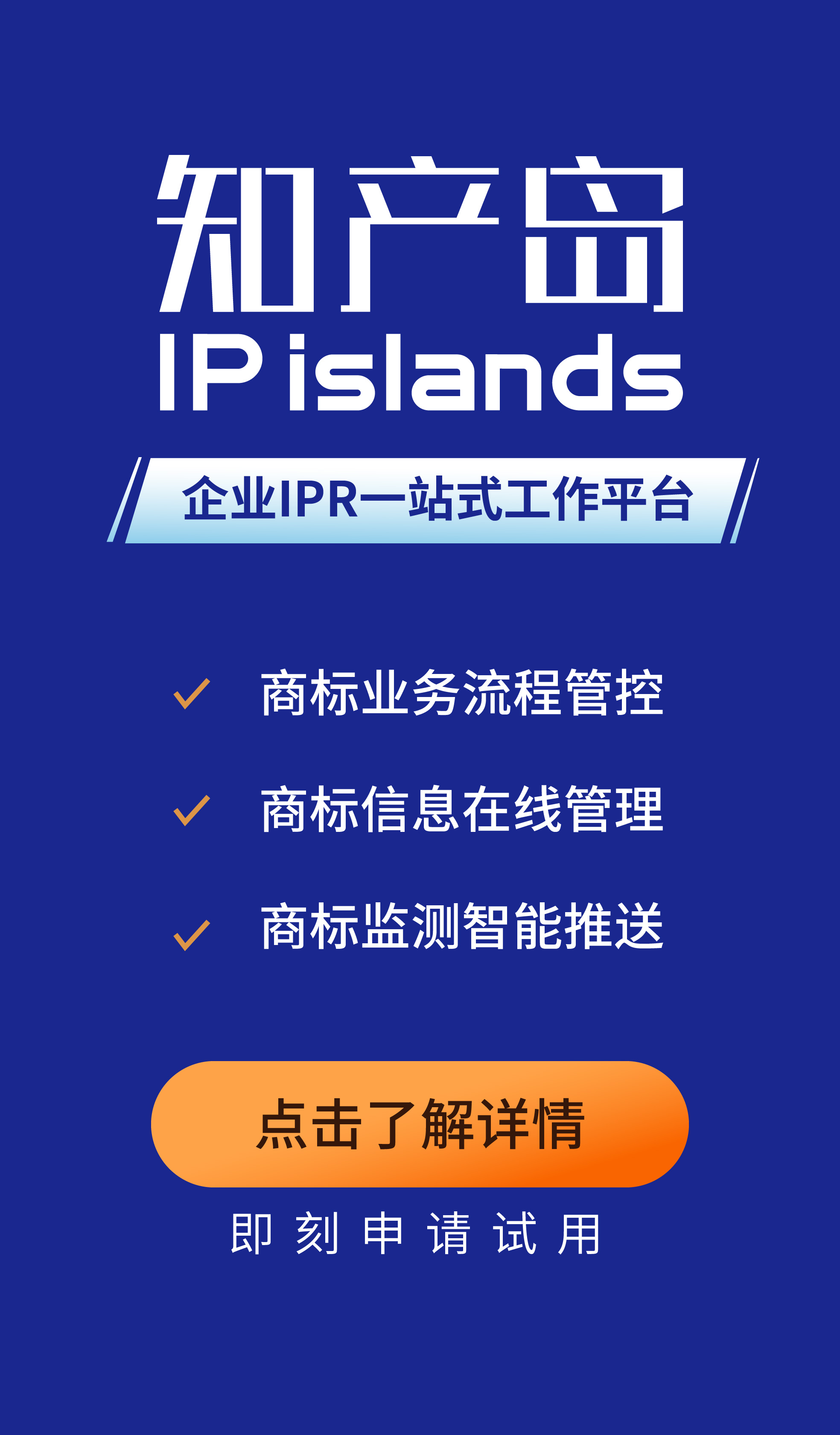本案,TTAB发现有许多第三方在Tweets和Instagram中使用#MAGICNUMBER108作为主题发布关于2016年芝加哥小熊队赢得世界大赛冠军的帖子,而不是申请人所提供的任何商品或服务。
TTAB认为当一个井号标签于在线社交媒体搜索中被作为检索词的一部分时,这一标签基本不能提供指明来源的功能,因为它“仅仅是促进了在线社交媒体内的分类和搜索。”
本案,TTAB发现申请人在T恤衫上使用#MAGICNUMBER108是不够的,因为申请人没有对其商品提供识别,或建立任何复制方法以提高商品知名度。
此外,TTAB指出申请人提供了与#MAGICNUMBER108有关的商品展示,这些商品并非商标申请中所涵盖的商品类型。
和其他商标一样,为与商品及/或服务有关的井号标签商标寻求保护,您应:
如果你决定在社交媒体活动中使用井号标签商标,用它来鼓励消费者使用井号标签商标,以如创造所申请商品和/或服务的知名度。
将“hashtag(井号标签)”一词或井号标识 (#) 添加至其他不可被注册的词语中,通常不会使这一复合词语变得可被注册。例如,如果商标由HASHTAG(井号标签)一词或井号标识组成,其后的措辞仅是一般性描述(merely descriptive)或是商品/服务的通用名称(generic),整个商标只能作为描述性商标或通用商标被拒绝(如#SKATER作为滑板器材的商标仅属于一般描述性)
考虑到井号标签的目的是尽可能多的促进消费者的在线对话,井号标签商标可能在商标执行和监管第三方使用该类商标中出现挑战。因此,如果您想通过向USPTO申请注册来利用井号标签商标的影响力,您应考虑到这些在线对话可能对井号标签可注册性所带来的影响。
In this case, the TTAB found that numerous third-parties used #MAGICNUMBER108 as the subject matter of Tweets and Instagram posts related to the Chicago Cubs World Series win in 2016, rather than to any goods or services provided by the applicant.
The TTAB stated that where a hashtag is used as part of an online social media search term, it generally serves no source-indicating function, because it “merely facilitate[s] categorization and searching within online social media.” TMEP § 1202.18. In re: DePorter, p. 2.
In this case, the TTAB found that it was not enough that the applicant used the #MAGICNUMBER108 on t-shirts because the applicant failed to identify or produce copies of any methods used to create product awareness.
Moreover, the TTAB noted that to the extent the applicant provided examples of where goods were shown in connection with #MAGICNUMBER108, they were not the type of goods that were covered in the trademark application.
Like with other trademarks, to seek protection for a hashtag trademark in connection with goods and/or services, you should:
Choose a distinct word or phrase that relates to the applied-for goods and services;
Plan to use the hashtag trademark on point of sale signs, packaging, displays, advertisements, brochures and/or websites in a prominent manner to promote the applied-for goods and/or services.
If you decide to use the hashtag trademark in a social media campaign, use it to encourage consumers to use the hashtag trademark to create awareness for the applied-for goods and/or services.
The addition of the term “hashtag” or the hash symbol (#) to an otherwise unregistrable term typically will not render the resulting composite term registrable. For example, if a trademark consists of the term HASHTAG or the hashtag symbol followed by wording that is merely descriptive or generic for the goods or services, the entire trademark must be refused as merely descriptive or generic (i.e. #SKATER for skateboarding equipment is merely descriptive).
Given that the purpose of a hashtag is for it to be used by as many consumers as possible to develop online conversations, hashtag trademarks may present challenges in enforcing and policing third-party uses of such trademarks. As a result, if you intend to leverage the reach of a hashtag trademark by seeking registration with the USPTO, you should consider the impact that these online conversations may have on the registrability of the hashtag.

#本文由作者授权发布,未经作者许可,禁止转载,不代表IPRdaily立场#
发布:IPRdaily中文网(iprdaily.cn)
作者:Andrew Avsec 律师 及Evi Christou律师
供稿:Brinks Gilson & Lione律师事务所
原标题:井号标签被认为不可注册
越来越多的公司选择以互联网的方式传播其商品知名度,本文案件中,美国商标审理与上诉委员会对井号标签(#)是否可申请注册成为商标提供了裁决,其中强调井号标签商标和其他商标申请一样,均需要满足表明商品的单一来源或原产地的功能方可获得注册。
美国商标审理与上诉委员会(Trademark Trial and Appeal Board,“TTAB”)近期就使用井号标签商标(hashtag trademarks)作出先例判决:In re: DePorter, Serial No. 87/229,711 (TTAB Jan. 29, 2019)。许多公司在市场销售中使用井号标签,本案的判决强调了在对该类商标进行保护和寻求注册时需考量的实际问题。
本案,申请人对商标注册第25类中的各类服装项目欲寻求注册#MAGICNUMBER108(神奇数字108)。芝加哥小熊队的棒球迷们在该队2016年成功获得世界大赛冠军期间及之后,频繁在社交媒体发帖中使用#MAGICNUMBER108 井号标签 – 该俱乐部108年来首次获得的世界大赛冠军。审查员律师与TTAB拒绝这一注册申请,理由为#MAGICNUMBER108 仅为单纯的信息主题而不具备商标的功能,既可用以识别申请人的商品来源并与其他人的商品加以区分。TTAB强调说“作为一个标识,词语的使用方式必须可向购买者或潜在购买者表明商品的单一来源或原产地。”作为对这一观点的支持,TTAB认为由审查员律师提供的证据显示,在传播芝加哥小熊队在世界大赛中亮相并在108年后获得冠军的信息时,#MAGICNUMBER108以非商标的形式被广泛使用。TTAB发现这一证据表明“在看到申请人的‘标识’时,潜在购买者熟悉了它被广泛传播的非商标使用,这使购买者不太可能认为它能表明申请人的商品来源。”TTAB还指出在商标#MAGICNUMBER108中出现的井号可作为相关的事实要素,因为字典对井号标签的定义为“一个词语或短语前有井号标识(#),在信息中用于确定感兴趣的关键字或主题,以便对它进行搜索。” TTAB强调其裁决认为#MAGICNUMBER108被视为一个井号标签是与本案的具体证据紧密相关的,并且每项案件必须根据本身的事实进行判决:“这并不是说每个井号及词语或短语的组合,都是或将是井号标签。”
重要事项:
TTAB在决策表达是否构成信息主题时,提供了其对井号标签所具有影响的观点。例如:
1. 公众对一个术语或表达越通常的使用,该表达可作为对单一来源识别的可能性越小。
2.仅有让井号标签具有商标功能的意图,或仅是这类商标出现在所申请商品上的事实,并不足以使其能成为商标。相反,一个井号标签商标的使用方式,必须是可向购买者或潜在购买者表明所申请商品的单一来源或原产地
3 . TTAB使用了Mucinex品牌作为对比实例,其井号标签商标可被注册:
Mucinex的制造商已经注册了#blamemucus,这一井号标签允许潜在的消费者通过社交媒体获得对其感冒的同情,并且传播了Mucinex的信息及参与抽奖。#blamemucus注册涵盖医药产品本身(提供了一间商店展示带有该标志的产品作为使用产品样片),并且通过互联网络持续提供呼吸和肺疾病领域的信息服务(提供公司网站作为产品样片)。
关键启示:
- 选择与所申请商品和服务相的关独特词语或短句;
- 计划在销售点的标志、包装、展示、广告、宣传小册子和/或网站上使用井号标签商标,以显著的方式推广所申请的商品和/或服务。
附:英文全文
Hashtag Found Not to be Registrable
The Trademark Trial and Appeal Board (“TTAB”) recently issued a precedential decision about the use of hashtag trademarks in In re: DePorter, Serial No. 87/229,711 (TTAB Jan. 29, 2019). Many companies use hashtags in their marketing, and this decision highlights practical considerations about protecting and seeking registration for such trademarks.
In this case, the applicant sought to register #MAGICNUMBER108 for various apparel items in Class 25. Chicago Cubs fans used the #MAGICNUMBER108 hashtag frequently in social media posts during and after the Cubs’ successful 2016 World Series campaign – the club’s first World Series title in 108 years. The Examining Attorney and the TTAB refused registration on the ground that #MAGICNUMBER108 is mere informational matter that fails to function as a trademark to indicate the source of the applicant’s goods and identify them from the goods of others. The TTAB emphasized that “[t]o be a mark, the phrase must be used in a manner which indicates to purchasers or potential purchasers a single source or origin for the goods.” In re: DePorter, p. 3. As support, the TTAB acknowledged that the evidence provided by the Examining Attorney showed wide use of #MAGICNUMBER108 in a non-trademark manner to convey information about the Chicago Cubs’ World Series appearance and win after a 108-year drought. The TTAB found that this evidence suggested that “upon encountering Applicant’s ‘mark,’ prospective purchasers familiar with such widespread non-trademark use are unlikely to consider it to indicate the source of Applicant’s goods.” In re: DePorter, p. 11. The TTAB also noted that the presence of the hash mark in the trademark #MAGICNUMBER108 was a relevant factor because the dictionary definition of a hashtag “is a word or phrase preceded by a hash mark (#), used within a message to identify a keyword or topic of interest and facilitate a search for it.” In re: DePorter, pp. 11-12. The TTAB emphasized that its conclusion that #MAGICNUMBER108 would be perceived as a hashtag was tied to the particular evidence of this case and that each case must be decided on its own facts: “That is not to say that every combination of a hash mark and word or phrase is or will be a hashtag.” In re: DePorter, p. 12.
Important Notes:
The TTAB provided its view on the impact that a hashtag has on its determination of whether an expression constitutes informational matter. For example:
1. The more commonly a term or expression is used by the public, the less likely the expression will be identified with a single source.
2 . Mere intent that a hashtag function as a trademark, or the mere fact that such trademark appears on the applied-for goods is not enough in and of itself to make it a trademark. Rather, a hashtag trademark must be used in a manner which indicates to purchasers or potential purchasers a single source or origin for the applied-for goods.
3. The TTAB used the Mucinex example to provide a contrasting instance where a hashtag trademark might be registrable:
[T]he makers of Mucinex have registered #blamemucus, which allows potential consumers to commiserate about their colds through social media, as well as spread the word about Mucinex and participate in drawings for prizes. The #blamemucus registration covers both the pharmaceutical products themselves (with a store display bearing the mark as a specimen of use) and services consisting of information in the field of respiratory and pulmonary conditions via the Internet (with the company website as a specimen).
In re: DePorter, p. 14.
Key Takeaways:
发布:IPRdaily中文网(iprdaily.cn)
作者:Andrew Avsec 律师 及Evi Christou律师
供稿:Brinks Gilson & Lione律师事务所
编辑:IPRdaily赵珍 校对:IPRdaily纵横君
推荐阅读(点击图文,阅读全文)
开年重磅!寻找40位40岁以下企业知识产权精英(40 Under 40)
“投稿”请投邮箱“iprdaily@163.com”

「关于IPRdaily」
IPRdaily成立于2014年,是全球影响力的知识产权媒体+产业服务平台,致力于连接全球知识产权人,用户汇聚了中国、美国、德国、俄罗斯、以色列、澳大利亚、新加坡、日本、韩国等15个国家和地区的高科技公司、成长型科技企业IP高管、研发人员、法务、政府机构、律所、事务所、科研院校等全球近50多万产业用户(国内25万+海外30万);同时拥有近百万条高质量的技术资源+专利资源,通过媒体构建全球知识产权资产信息第一入口。2016年获启赋资本领投和天使汇跟投的Pre-A轮融资。
(英文官网:iprdaily.com 中文官网:iprdaily.cn)
本文来自IPRdaily.cn 中文网并经IPRdaily.cn中文网编辑。转载此文章须经权利人同意,并附上出处与作者信息。文章不代表IPRdaily.cn立场,如若转载,请注明出处:“http://www.iprdaily.cn/”

 共发表文章
31245篇
共发表文章
31245篇- 我也说两句
- 还可以输入140个字










